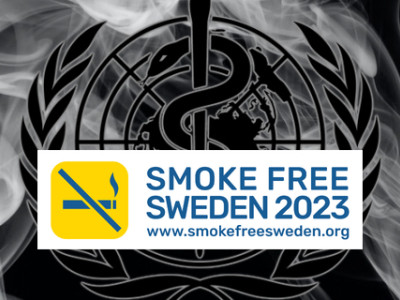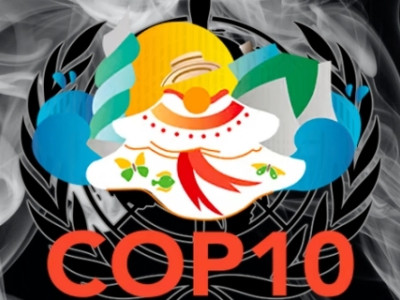The ninth biennial meeting of the COP (COP9) to the Framework Convention on Tobacco Control (FCTC), to be held virtually from 8 - 13 November, has barely warranted a mention in the news or in speeches from heads of state. Fighting The Last War: The WHO and International Tobacco Control, the new report from the GSTHR, reveals that the taxpayer funded FCTC COP9 will operate under conditions of secrecy comparable to the UN Security Council. The public and media are banned from attending all but one largely ceremonial opening plenary - yet millions will be affected by the decisions taken at COP9.
The report contends that current implementation of the FCTC is a global public health failure. In force since 2005, when there were 1.1 billion smokers around the world, the FCTC set out the principles of global tobacco control – to reduce the death and disease caused by smoking. In 2021, there are 1.1 billion smokers worldwide and 8 million smoking-related deaths each year. The number of smokers is predicted to rise and the number of smoking-related deaths is set to top one billion this century. Change, the authors state, is urgently needed.
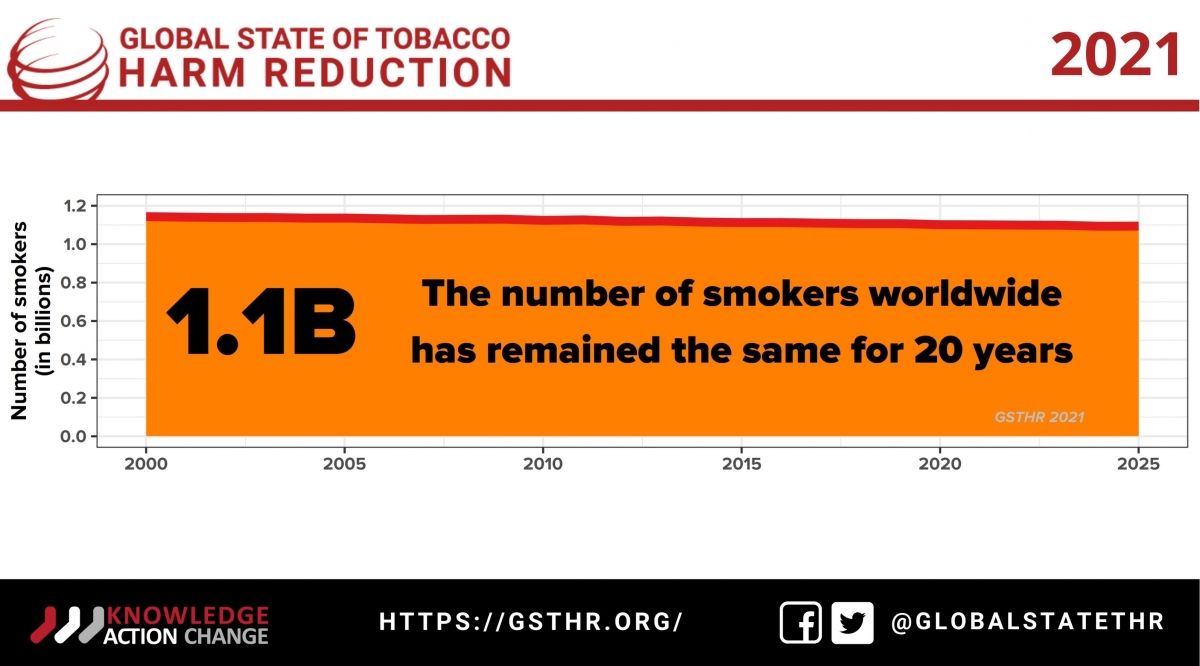
“Harm reduction for tobacco offers the opportunity for that change. Fighting The Last War notes that while tobacco control policy has remained ‘frozen in time’, ‘innovative non-combustible nicotine technology and supporting evidence have moved forwards’. Vaping devices, snus, nicotine pouches and heated tobacco products are significantly safer than cigarettes, as they deliver nicotine without combustion. This enables people who cannot or do not want to stop using nicotine to quit deadly smoking and switch. Just as delegates at COP26 will be discussing the world’s urgent need to stop fossil fuel combustion, the technology is now in place to ensure the end of the age of combustion for tobacco as well.
“A number of Parties to the FCTC, such as the United Kingdom and New Zealand, have successfully introduced tobacco harm reduction policies alongside their tobacco control regimes and have seen marked decreases in smoking rates. When given accurate information about comparative risk, many smokers switch: worldwide, the GSTHR estimated in 2020 that 98 million people worldwide were using safer nicotine products.”
Harm reduction is embedded in the WHO response to drug use and HIV/AIDS. It is explicitly named as the third pillar of tobacco control alongside demand and supply reduction in the FCTC. Yet the WHO has remained implacably opposed to harm reduction for tobacco and is increasingly viewed as having overseen a ‘mission creep’ which now sees international tobacco control setting its sights on prohibition for nicotine in all its forms.
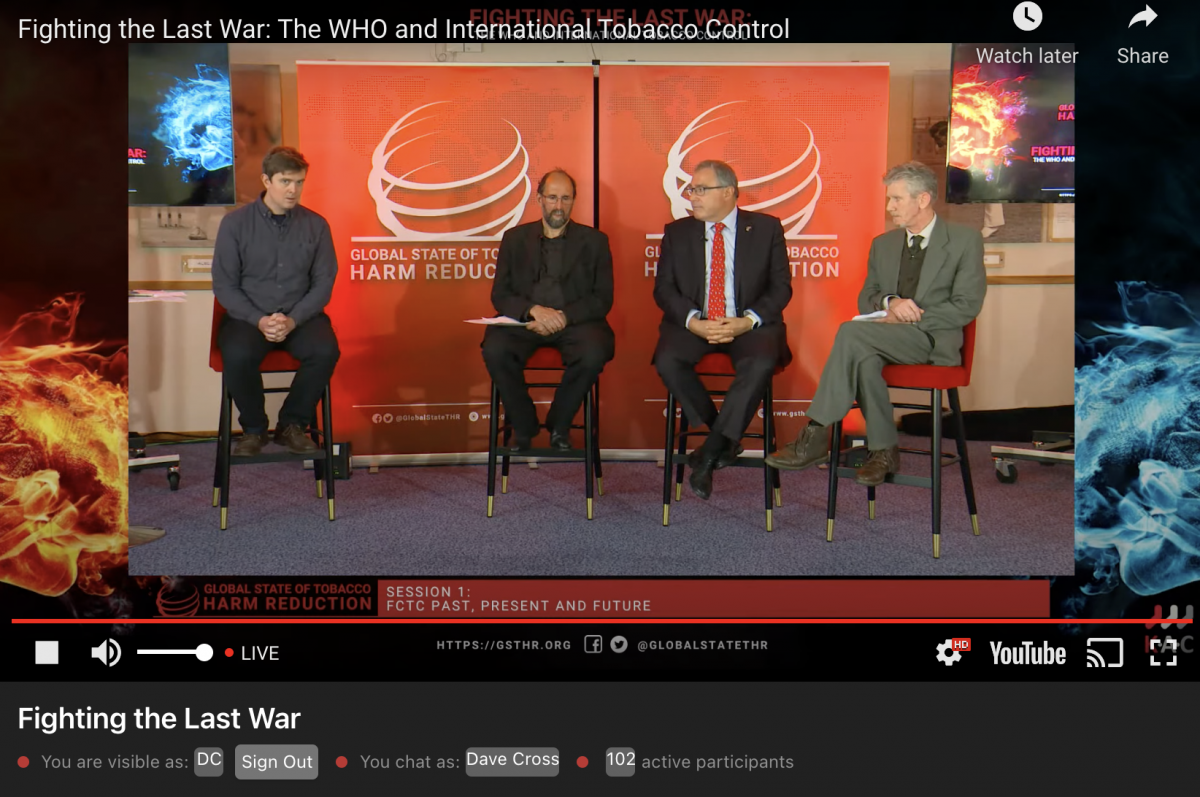
The authors say there are concerning signs in published agenda and briefing papers that the FCTC Secretariat and leadership continue to urge Parties against increasing access to, or even to prohibit, safer nicotine products. Fighting The Last War considers the motivations – ideological, financial and historical – that have led to many global tobacco control practitioners becoming so hostile to what others see as the greatest potential public health advance in decades.
The report argues that Parties to the FCTC need to seize back control of the COP meetings from the FCTC Secretariat which has become overly influential with little oversight. FCTC Parties should press for more evidence-based discussions, calling upon the widest breadth of scientific, clinical and epidemiological expertise on safer nicotine products and tobacco harm reduction. This should include evidence from Parties that have implemented harm reduction policies, those involved in manufacturing safer nicotine products, and the lived experience of consumers. The establishment of a Working Group on Tobacco Harm Reduction would offer a pragmatic route to move the FCTC towards a tobacco control regime fit for purpose in the 21st century.
Professor Gerry Stimson, Director of K∙A∙C and Emeritus Professor at Imperial College London, said: “As global leaders prepare to make important pledges on climate change under the glare of the media spotlight at COP26, we urge them to demand more from their delegations inside the closed and unscrutinised rooms of COP9. Every day, more than one billion smokers are being failed by the international tobacco control regime. The age of combustion - for tobacco as for fossil fuels - must end.
“Tobacco harm reduction offers new routes out for adult smokers. GSTHR estimates suggest that 98 million of them have already switched. At COP9, government delegations must seize back control and prevent the slide into outright nicotine prohibition that would see many return to smoking and many millions more never succeed in quitting.”
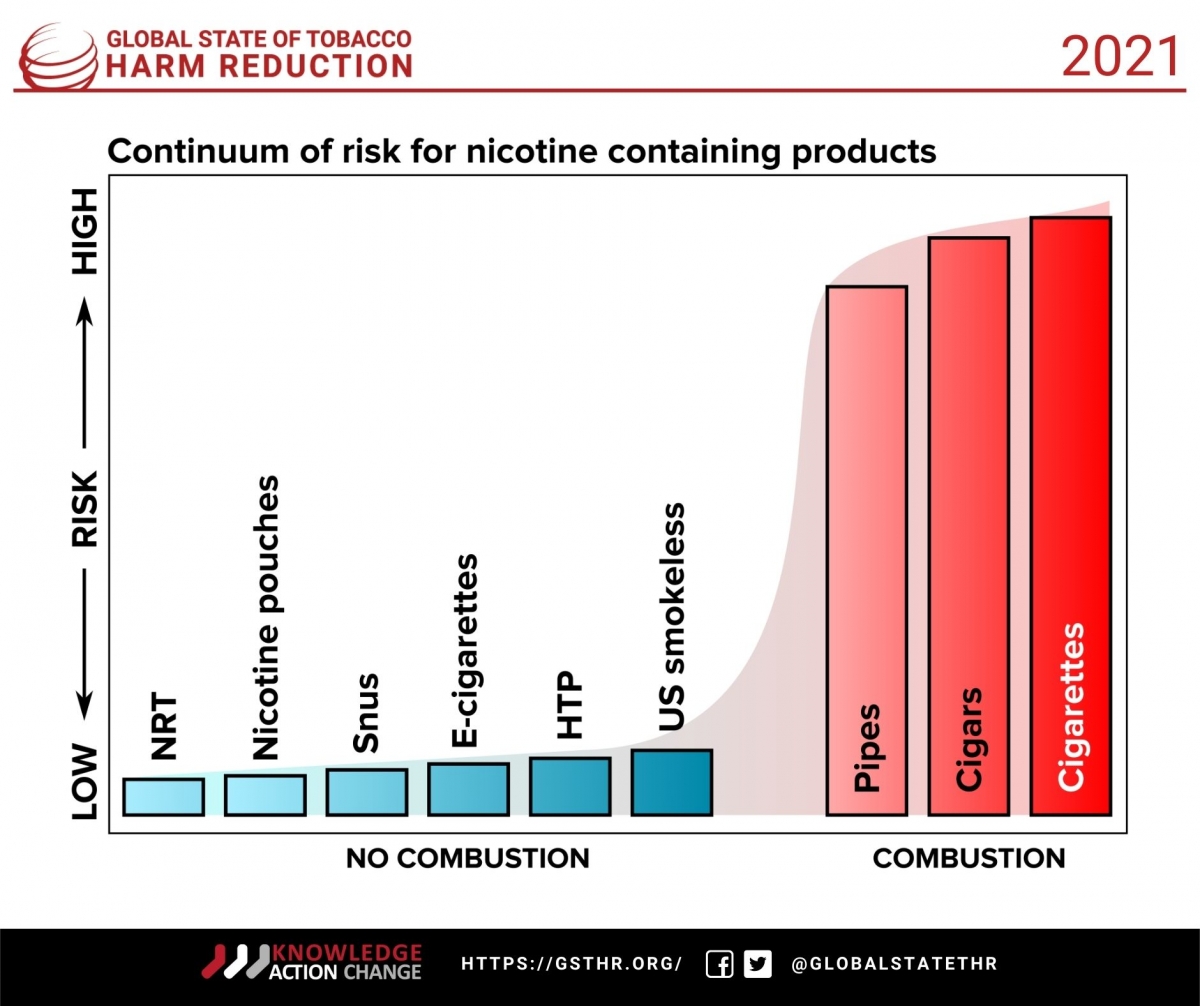
Harry Shapiro, report author, said: “The fight to reduce eight million smoking-related deaths a year is now being actively undermined by the WHO and the international tobacco control establishment. Together, they are fighting the last war against the tobacco industry – to direct attention away from the evidence that safer nicotine products can make a significant contribution to reducing that death toll.”
Ethan Nadelmann, founder of the Drug Policy Alliance, said: "If those who dominate the global tobacco control discourse were truly committed to public health imperatives, harm reduction principles and policies would be front and centre. This valuable report exposes the ways in which international institutions have turned their backs on scientific evidence and the human and political rights of hundreds of millions of people whose lives might be saved by safer nicotine products."
Jeannie Cameron, JCIC Consulting, said: “Fighting the Last War provides an insight into the dark arts of the WHO that many would find breath-taking and incomprehensible. It shows a concerning difference between the world’s preparations for COP26 on climate change and COP9 on tobacco. Governments need to stand up at COP9 to support tobacco harm reduction against the outdated views of the WHO."
Nataliia Toropova, Healthy Initiatives, said: "The challenge for lower and middle-income countries while fighting the last war and promoting real tobacco control is about two major issues. Firstly, the current provisions of the WHO FCTC have not been properly implemented due to stretched government resources. Thus, smoking cessation programs are non-existent, and adult smokers feel hopelessly stuck while making their numerous unsuccessful attempts to quit with no medical help or guidance provided.
“Secondly, the lack of a comprehensive harm reduction strategy is aggravated by a massive disinformation campaign about harm-reduction products and a declared war on nicotine. Unless these two issues get tackled, unless the powerful voice of doctors becomes loud and gets heard, unless education and awareness building campaigns take place, no changes will occur and this last war will be lost."
References:
- Fighting The Last War: The WHO and International Tobacco Control - https://gsthr.org/resources/thr-reports/fighting-the-last-war/122/
Dave Cross
Journalist at POTVDave is a freelance writer; with articles on music, motorbikes, football, pop-science, vaping and tobacco harm reduction in Sounds, Melody Maker, UBG, AWoL, Bike, When Saturday Comes, Vape News Magazine, and syndicated across the Johnston Press group. He was published in an anthology of “Greatest Football Writing”, but still believes this was a mistake. Dave contributes sketches to comedy shows and used to co-host a radio sketch show. He’s worked with numerous vape companies to develop content for their websites.
Join the discussion
Harm Reduction For The Rich
The United Kingdom risks becoming a harm reduction country only for the wealthy, according to Michael Landl of the World Vapers’ Alliance
CAPHRA Highlights Tobacco Control Flaws
The Coalition of Asia Pacific Tobacco Harm Reduction Advocates highlights the flaws in tobacco control which has led to the rise of black market in Australia
A Missed Opportunity at COP10
The Smoke Free Sweden movement says that COP10 was a missed opportunity to save millions of lives
COP10: Promote Tobacco Harm Reduction
Experts with Smoke Free Sweden are emphasising the urgent need for a Tobacco Harm Reduction approach at COP10





